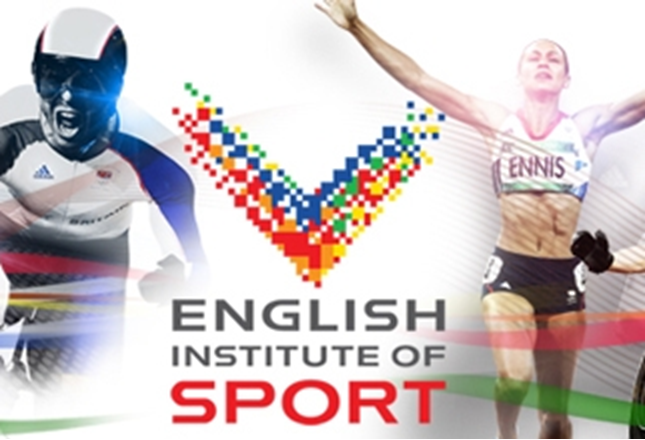
It tells you a lot about the changing landscape of elite sport that we now recognise that Mental Health Awareness Week is relevant to our world, whereas 10 years ago it would have passed with little notice.
Preserving and protecting the mental health and wellbeing of our people is now widely accepted as a central component of success in high performance sport.
There are many reasons for this and it cannot be denied that some of the high profile incidents of the last 12 months, which have questioned the appropriateness of culture and behaviours in some sports, have helped to drive it up the agenda. However it is also clear that there are numerous examples of excellent athlete welfare practices that exist across our Olympic and Paralympic sports. As an organisation that is embedded in the high performance system the EIS has been central to developing critical support, and along with organisations like the British Athletes Commission (BAC), has played an important role in delivering a duty of care to athletes in recent years.
Through our team of Performance Lifestyle Advisors we have provided a wide range of support to athletes throughout the London and Rio cycles and will continue to do so in run-up to Tokyo when these services will be available to more than 1,300 Olympic and Paralympic athletes.
Along with this, our Doctors provide care to athletes and our Performance Psychology team deliver a wide range of services to help them prepare mentally for the demands of training and competition.
We also oversee the Mental Health Referral Programme (MHRP), which was established in 2014 and provides specialist primary and secondary care services to elite athletes that are struggling with mental health issues including depression, stress, anxiety, eating disorders, obsessive compulsive disorders and addictions.
These services have all helped to deliver a duty of care to elite athletes, however we recognise that mental health challenges are likely to become greater and more complex in years to come and recognise that much more will need to be done.
Over the last three Olympic and Paralympic cycles we have seen unprecedented success. After each achievement in performance, coaches, athletes and staff all look to how the next incremental step forward can be made. The margins between success and failure are minute, and the challenge for coaches and Performance Directors to lift their athletes to podium success is becoming more and more intense. The fight against doping and drugs cheats must be fought and won, but there is also another cultural challenge that needs equal attention. The grey area that exists, where the line between pushing athletes to achieve in an intensely hard environment and a bullying culture can become blurred. It is sometimes difficult to define bullying and other unacceptable behaviours. There is no formula or objective measure. One person’s bullying is another’s acceptable hardship in the quest for increased resilience and success. Intent and impact are key considerations in trying to grasp where the line is drawn. As a whole the system has relied on traditions and inherited cultures to define what is acceptable.
We have seen unprecedented support and enthusiasm from the government and the great British public over the last 12 years. We must protect the reputation and culture of our sports or we run the risk of the great British public becoming disillusioned and falling out of love with the Olympic and Paralympic movement.
This is not a situation that any of us want to see and that is why I believe there is more we must do to be on the front-foot and proactively shape and influence the culture of high performance sport in a way that prioritises athlete welfare.
Underpinning all of this is a need for what I would describe as ‘courageous leadership’ from Chief Executives, Performance Directors and all of us in positions of influence within the high performance system. Decisions and plans that appear to be the “hard option” will need to be grasped. If we want a reminder of courageous leadership we only need to look back to Rio and the decision by the President of the International Paralympic Committee, Sir Phillip Craven, to ban all Russian athletes from competing at the Rio 2016 Paralympics following the country's doping scandal. Decisions of this magnitude take courage and a willingness to act in the interest of “doing what’s right” and not opt for the easier alternative.
Clarke Carlisle and Ollie Phillips during recent Mental Health Charter for Sport and Recreation event
As we look forward to the 2020 Olympic and Paralympic Games, I have no doubt that delivering a duty of care and seeking to protect and preserve the wellbeing of our athletes is one of the most significant priorities of the high performance system and firmly believe the success of Great Britain in Tokyo will be judged on the level of our ethical approach as well as our performance in the medal table.
Our system has become expert at identifying and implementing what it takes to win. The challenge now is to become equally adept at understanding what we will not do to win.
It is with immense sadness that the Sport and Recreation Alliance learned of Andy Sutch’s passing last week, and we send our deepest condolences to Andy’s family and friends.
Read moreThis afternoon, the Chancellor delivered her Budget speech to Parliament, outlining decisions on tax and spending.
Read moreAhead of the Chancellor’s Budget statement on 26 November, we take a look a look at the key areas to be aware of and the work the Alliance has been doing lobbying on behalf of members.
Read moreJoining the Sport and Recreation Alliance is pretty simple, but worthwhile!
Register now